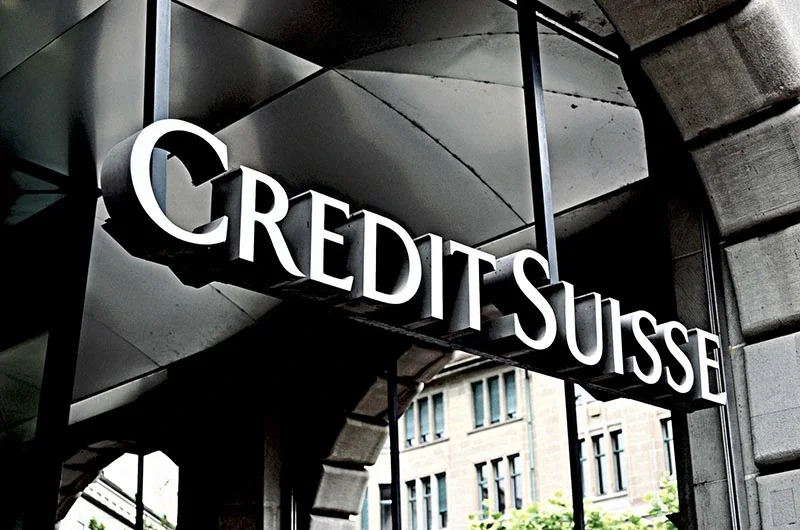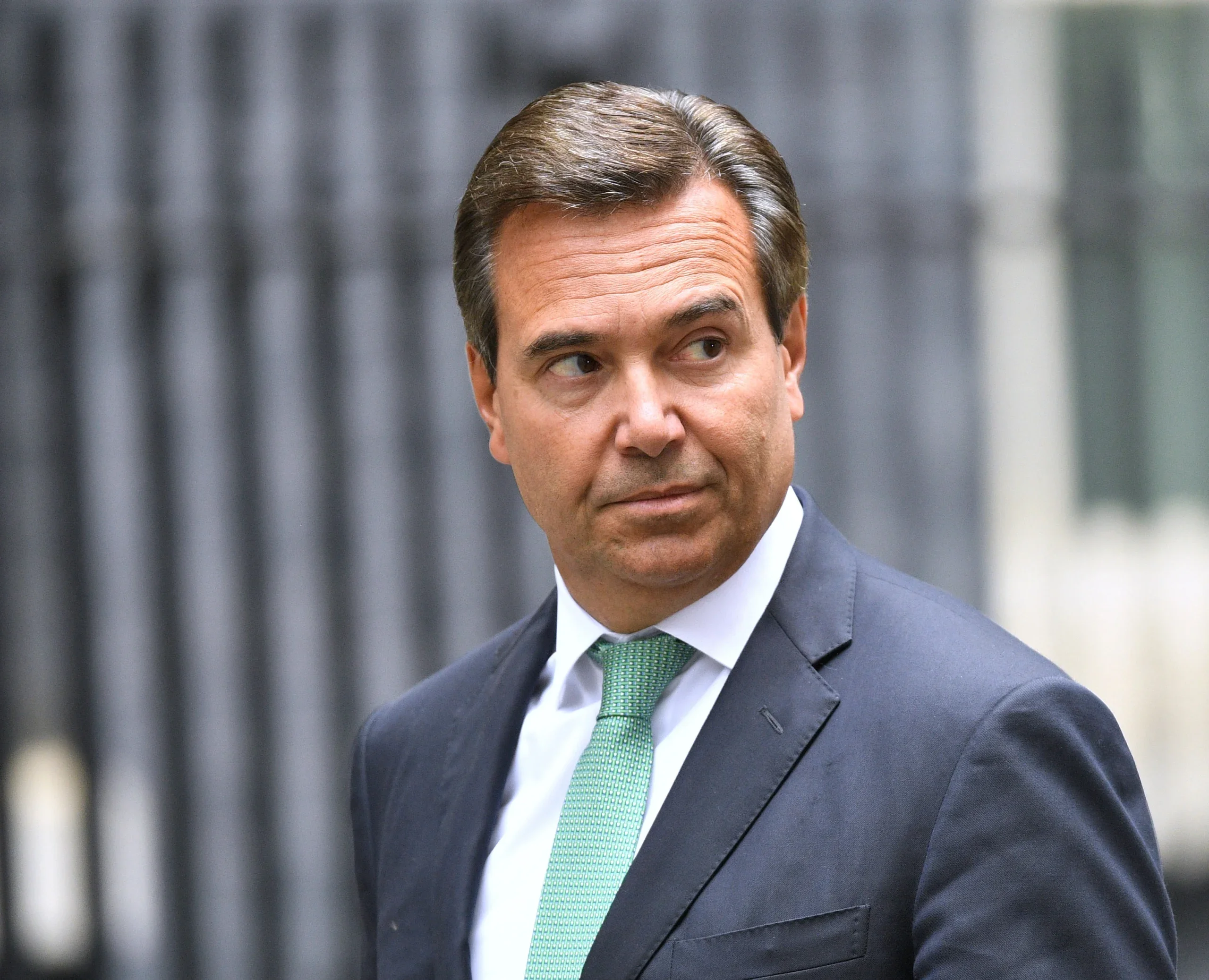
A dramatic intervention by the Swiss authorities ended the 167-year history of independence of Credit Suisse
Can Credit Suisse come back from the brink, asked Spear’s in its January cover article.
The question was definitively answered on Sunday 19 March when the Swiss banking giant was subsumed into fierce rival UBS in a humiliating weekend takeover orchestrated by the Swiss government.
Designed to quell fears of financial contagion, the sudden move was a fundamental admission that Credit Suisse, after 167 years in business, had no viable future as an independent bank.
Global markets, already thrown into panic by the sudden collapse of Silicon Valley Bank earlier this month, were stunned. For all its travails in recent months and years, despite its cratering share price, few expected this outcome.
Material weaknesses
Though the downfall of Credit Suisse has been years in the making, a series of events since the start of 2023 have proved calamitous.
Persistent rumours about the extent of its financial problems, on social media and within the financial community, had plagued Credit Suisse since October.
We announced our intention to acquire @CreditSuisse. This strengthens UBS’ position as leading global wealth manager in highly attractive growth markets. We continue to focus on the needs of our clients, with the support of our new colleagues. Learn more https://t.co/p3LfwKbcfZ
— UBS (@UBS) March 20, 2023
A fully underwritten rights issue announced late last year steadied the ship as chairman Axel Lehmann and CEO Ulrich Körner succeeded, for a time, in winning over doubters.
But the rumours returned with a vengeance this year, as the bank announced its worst annual results since 2008 and then identified ‘material weaknesses’ in its internal controls over financial reporting.
Fatal interview
The bank’s share price, having already sunk dramatically from its April 2007 highs above $70, was down to about a tenth of that amount by the start of 2022.
And worse was to come. Having opened this year at little more than $3, its vertiginous decline continued this month amid an avalanche of negative news.
Credit Suisse’s head of regulatory compliance, Julian Gooding, left his post in early March, raising more questions.
Days later, the chairman of Saudi National Bank, Credit Suisse’s largest shareholder with a 10 per cent holding, said it would not put more money into the beleaguered bank — a comment which proved catastrophic.
The casual remark made by Ammar Al Khudairy in a TV interview triggered a new crisis of confidence and shares plummeted to an all-time low. The bank then received a 50 billion Swiss franc lifeline from the central Swiss National Bank, and the country’s regulator sought to reassure markets about its financial health.

But it was too little, too late. By the end of the week, the Swiss authorities — the so-called ‘trinity’ of its central bank, regulator Finma and government — had decided the crisis must be brought to an end.
Huge loss
A frantic weekend of negotiations saw Credit Suisse cornered and forced to become part of UBS, its crosstown neighbour in Zurich, for a paltry $3.2 billion.
The all-share deal saw Credit Suisse investors receive one UBS share for every 22.5 they owned, representing a huge loss for shareholders including Saudi National Bank and Qatar Investment Authority.
The deal was announced late on Sunday, before markets opened in Asia, but left a series of unanswered questions. The decision to wipe out holders of AT1 bonds, while shareholders got a payout in the deal, went against financial norms and sparked uproar.
The decision to allow Credit Suisse staff to keep their bonuses also proved highly controversial, and has now been suspended.
Scandal after scandal
The Saudi National Bank chair’s words may have proved fatal, but Credit Suisse has been unwell for a while.
A series of scandals in recent years repeatedly undermined confidence in the decision-making of top executives, while risk management failures shattered confidence.
Credit Suisse’s demise would have been hard to imagine in 2008. The lender, a pillar of the Swiss establishment, navigated the financial crisis relatively smoothly. UBS, not Credit Suisse, took a state bailout in 2008.
But the post-crisis years were characterised by missteps and scandals, most bizarrely when an executive, Iqbal Khan, was tailed by private contractors on company orders in the ‘spygate’ affair.
From its $2.6 billion fine in 2014 for illegally allowing some US clients to evade taxes, to an accounting scandal at client Luckin Coffee in 2020, the issues have been widespread.
Archegos, Greensill exposure
The bank lost billions after being badly exposed to Archegos Capital, a family office run like a hedge fund which collapsed in March 2021. Then British supply chain finance firm Greensill Capital, a key client, went down, sparking huge losses and litigation bills added up.
These failures of oversight proved as damaging as anything in recent weeks. Antonio Horta-Osorio, the former CEO of Lloyds Banking Group, arrived soon after as chairman but himself lasted less than a year, resigning in January 2022 over Covid-19 quarantine breaches.

UBS executive Axel Lehmann succeeded him as chairman but fresh scandals soon arrived, including the ‘Suisse Secrets’ data leak in February 2022 revealing an unsavoury cast of clients.
Persistent volatility
All this time the share price proved volatile and took more downward steps, weakening Credit Suisse’s financial position and room for manoeuvre.
A new chief compliance officer, brought in after the Archegos and Greensill scandals, was out by October after little more than a year in post. The rapid turnover of key staff, particularly in compliance positions, said it all.
When it came, the end-game was quick and the bank now faces a complicated future as part of UBS. After 167 years, Credit Suisse’s proud history of independence has come to an end.
Will Wainewright is the founder of hedge fund and private markets news site Alternative Fund Insight.
Top image / Shutterstock
Order your copy of The Spear’s 500 2023 here.
More from Spear’s:
What the 2023 Budget means for high earners






